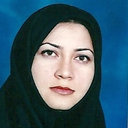Primary creatine deficiency syndrome as a potential missed diagnosis in children with psychomotor delay and seizure: case presentation with two novel variants and literature review.
Kulcsszavak
Absztrakt
Creatine is the main source of energy for the brain. Primary creatine deficiency syndromes (PCDSs) are inborn error of metabolism of creatine synthesis. Symptoms of central nervous system involvement are the most common clinical manifestations in these disorders. We reviewed medical records of all genetically confirmed patients diagnosed by whole exome sequencing who were referred to Myelin and Neurodegenerative Disorders Clinic, Children's Medical Center, Tehran, Iran, from May 2016 to Dec 2018. A literature review was conducted on clinical and genomic variability of PCDS to compare our patients with previously reported cases. We report two patients with creatine deficiency among a cohort of 550 registered cases out of which 200 patients had a genetically confirmed neurodegenerative disorder diagnosis. The main complain in the first patient with creatine transporter (CRTR) deficiency was seizure and genetic study in this patient identified a novel hemizygote variant of "c.92 > T; p.Pro31Leu" in the first exon of SLC6A8 gene. The second patient with guanidinoacetate methyltransferase (GAMT) deficiency had an unknown motor and speech delay as the striking manifestation and molecular assay revealed a novel homozygote variant of "c.134G > A; p.Trp45*" in the first exon of GAMT gene. PCDSs usually are associated with nonspecific neurologic symptoms. The first presented case had a mean delayed diagnosis of 5 years. Therefore, in children with unexplained neurologic features including developmental delay and/or regression, mental disability and repeated seizures without any significant findings in metabolic studies, PCDSs can be considered as a differential diagnosis and molecular analysis can be helpful for the precise diagnosis and treatment.


